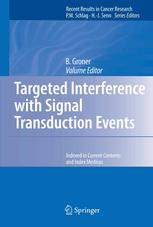

Most ebook files are in PDF format, so you can easily read them using various software such as Foxit Reader or directly on the Google Chrome browser.
Some ebook files are released by publishers in other formats such as .awz, .mobi, .epub, .fb2, etc. You may need to install specific software to read these formats on mobile/PC, such as Calibre.
Please read the tutorial at this link: https://ebookbell.com/faq
We offer FREE conversion to the popular formats you request; however, this may take some time. Therefore, right after payment, please email us, and we will try to provide the service as quickly as possible.
For some exceptional file formats or broken links (if any), please refrain from opening any disputes. Instead, email us first, and we will try to assist within a maximum of 6 hours.
EbookBell Team

4.8
24 reviewsSequencing of the human genome and insights into signaling pathways have contributed to the understanding of cancer etiology and the development of new, improved cancer drugs. DNA mutations of a limited set of genes are responsible for the multiple stages of tumorigenesis and metastasis. Matching of therapeutic intervention with insights into the underlying molecular disease mechanism has led to the development of drugs such as Herceptin and Glivec. The deregulation of pathways due to mutated cancer genes provides the conceptual basis for future progress. Will it be possible to extrapolate this principle and derive more efficient drugs targeting cancer pathway components? Potential drug targets have been identified, but our ability to predict the consequences of inhibition of such components is still limited. The state of development of tomorrow’s cancer drugs, directed against growth factors, growth factor receptors and intracellular signaling molecules with kinase activities, is described in this book.